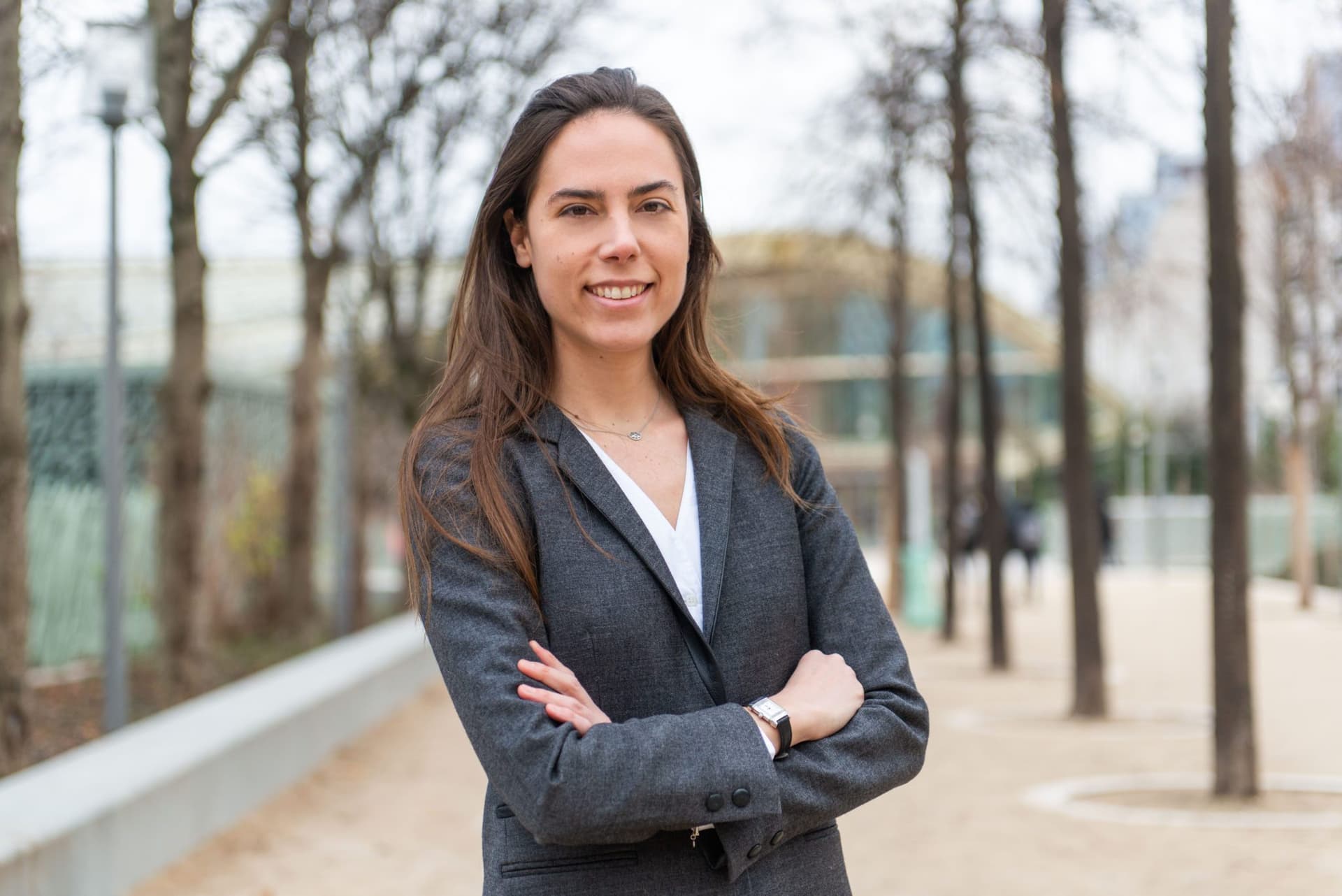Gone Crypto: Why I left HSBC to Run Kaiko
Soubiran first heard about bitcoin by chance. A mathematician by training, she was intrigued.

Ambre Soubiran, CEO, Kaiko; Source: Kaiko
- The notion of digital scarcity is really what got Soubiran hooked on digital assets
In 2012, former HSBC analyst and current CEO of Kaiko Ambre Soubiran wandered into a bitcoin “meetup” in London. It was her first time attending any such event, and she found it all a little strange.
“You know, back then crypto was still a bit of an anarchist kind of world,” Soubiran said. “It was just some obscure people telling me about this money that will change the world.”
Soubiran had first heard about bitcoin by chance. A mathematician by training, she was intrigued.
“I stumbled upon the bitcoin whitepaper completely randomly on some kind of geeky math blog,” said Soubiran. “I heard about this meetup and decided to go. I ended up buying my first bitcoin there.”
Financial engineering
The notion of digital scarcity is really what got Soubiran hooked on digital assets, she said. When someone sends bitcoin, the sender no longer has possession of it. It’s completely different from digitally sent photos or documents, where both the sender and the receiver have possession of the files.
“I was really interested in the idea that we now, for the first time ever in financial engineering, had a technology that enabled the creation of digital scarcity, and what that meant for finance at large,” said Soubiran.
While she was delving more into crypto, Soubiran was working on strategic equity derivatives at HSBC. She was in charge of sales and structuring, which had next to nothing to do with digital assets, but the new technology got her thinking.
“When I realized what was going on, I started reaching out to the big guys at HSBC and told them that there’s this new technology, and it is going to be a game changer for banking,” said Soubiran.
The “bitcoin blockchain person”
Soubiran may have seen the writing on the wall, but most of the world was still a bit behind.
“It was still really early,” said Soubiran. “The first thing you saw when you were Googling bitcoin at that time was that the FBI had just taken down the Silk Road. There was this big, reputational dark shadow around bitcoin.”
Unsurprisingly, back then, banks wanted nothing to do with bitcoin at all, Soubiran said.
“I kind of pushed a bit for nothing internally, but on the plus side, I got known within the bank as the ‘bitcoin blockchain person,’” she said.
In 2014, Soubiran was introduced to Pascal Gauthier, who now serves as the CEO of Ledger. He had just founded crypto data firm Kaiko and wanted to talk to someone from HSBC about bitcoin. Being one of very few crypto-literate bankers, Soubiran was sent to meet him.
“We went for a martini in London, and he told me about Kaiko,” said Soubiran. “A couple hours later, I said to him ‘it’s brilliant.’”
Soubiran knew that institutions would soon come to the realization that crypto is fascinating, and the first thing they will need is data. It was still too early, though.
“Banks just didn’t want to hear about crypto at that stage,” Soubiran said.
Gauthier and Soubiran stayed in touch, though. In 2016, Gauthier was offered a position with Ledger. There was still no institutional market for crypto data, so Kaiko was struggling.
“It was a very retail industry, and nobody needed data in order to trade. There was no B2B segment within crypto,” said Soubiran. “Gauthier told me he was considering selling Kaiko. He had an offer on the table for a couple of million dollars from a crypto exchange.”
Seeing the potential
Soubiran saw the potential for Kaiko and realised it would be a shame to sell the business at this stage of the story. Nothing else like the database existed yet, and there was a lot of potential.
“I told him that the market is becoming a little bit more receptive to the notion that you need data, it’s getting more and more sophisticated, it’s such a shame to sell down just for the data right now,” said Soubiran. “I told him that I would be interested in leaving HSBC and acquiring Kaiko.”
In 2016, she left HSBC and started running Kaiko.
“Honestly, I loved my job at HSBC,” Soubiran said. “I was just so excited and so passionate about what blockchain meant.”
It’s all happening now
The early days at Kaiko weren’t easy.
“There were no employees and no clients back then,” she said. “It was literally just the technology, the brand and the database.”
Kaiko finally started selling data in 2017. Soubiran raised the first round of funding in 2018, and then a seed round in 2019. She was able to hire full-time employees to grow the company and open an office in New York. Most importantly, she said, the funding allowed her to strongly invest in infrastructure and technology.
Today, Soubiran finally finds herself in the market she has been waiting for.
“It’s paying off now. We’ve seen all of those large financial institutions rally to the space, and there’s clearly now enterprises with stable balance sheets that are publicly getting into the space,” Souniran said.
“All of these guys need data for many reasons, and that’s what we’ve been waiting for. It’s all happening now.”
Have your own traditional-finance-gone-crypto story to tell? Email us at [email protected].






